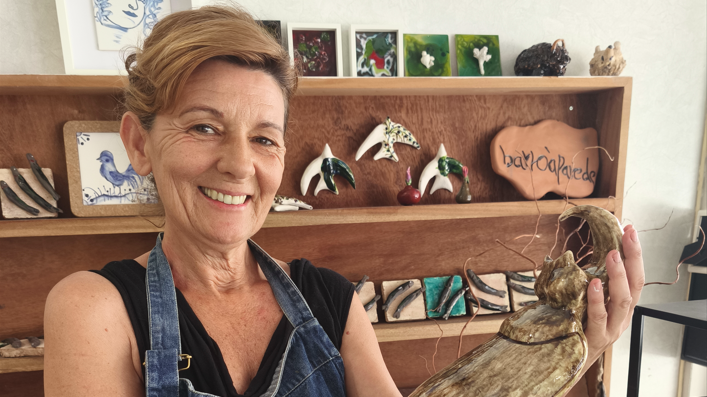"The Personal and the Political" is the theme of the exhibition, which will be open to the public until September 7, and which focuses on the series of works in which intimate and seemingly personal moments are transformed into images of collective experience, the museum reveals in a statement.
“This politicisation of the private sphere is comparable to the efforts and methods of the Feminist Movement of the 1960s and 1970s, which is why the title of the retrospective is based on the feminist slogan ‘The personal is political’,” she explains.
This exhibition follows Paula Rego’s artistic development from her studies at the Slade School of Fine Art in London, from the 1950s to the 2000s, presenting “her powerful, often shocking paintings and drawings that address power structures, gender roles and social injustices”.
In her work, Paula Rego addresses political issues, such as abuse of power, and social issues, such as abortion, domestic violence, among others, in the female universe.
The variety of works on display is complemented by selected paintings and examples of the dolls the artist used in her compositions, which eventually became works in their own right.
The exhibition “The Personal and the Political” is supported by the Karin and Uwe Hollweg Foundation and the Portuguese Cultural Center Camões Berlin.
Born in Lisbon, Paula Rego (1935–2022) is one of the best-known contemporary Portuguese artists and one of the most notable figurative painters in recent history.
At the age of 17, and with her talent for drawing recognized by teachers at St. Julian's School, in Carcavelos, Paula Rego left for the British capital to study at the Slade School of Fine Art (between 1952 and 1956), where she lived with several artists who would also become famous, including her husband, Victor Willing (1928-1988).
Throughout her artistic career, spanning more than six decades, she painted to tell stories and was, at the same time, a character and a storyteller.















